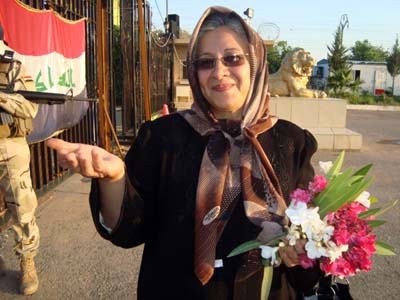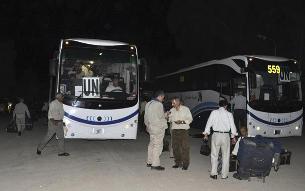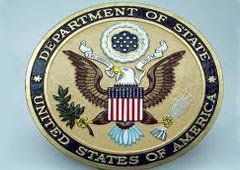Forty two eye witnesses to the attack on Camp Ashraf on September 1st 2013 have mysteriously disappeared after they were transferred to Camp Liberty on September 11th. Officials from the 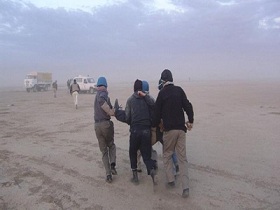 Government of Iraq (GOI), which has been tasked by the United Nations to investigate the attack in which fifty three people died, have been unable to contact the survivors since they were relocated under UNAMI supervision, and Camp Ashraf was finally closed.
Government of Iraq (GOI), which has been tasked by the United Nations to investigate the attack in which fifty three people died, have been unable to contact the survivors since they were relocated under UNAMI supervision, and Camp Ashraf was finally closed.
At the time the attack took place, the Mojahedin Khalq had maintained a symbolic force of around one hundred loyalists at Camp Ashraf, ostensibly to sell off MEK assets although this never happened. Fifty three residents were killed in brutal execution style during the attack by unknown assailants, but afterwards MEK leaders refused to fully cooperate with teams of concerned visitors and investigators from the UN, the US embassy and the GOI.
Deputy Special Representative of the United Nations Secretary-General (DSRSG), Mr Gyorgy Busztin visited the camp on September 3rd and tasked the Iraqi government to “ensure that a thorough, impartial and transparent investigation into this atrocious crime is conducted without delay and that the results of the investigation are made public”. After extensive searches inside Camp Ashraf and widespread enquiries in the immediate vicinity and beyond, Iraqi investigators are still unable to say who perpetrated the attack, nor what actually took place inside the camp. It did not help that the MEK have refused to hand over many films and photographs which they took themselves just before, during and in the aftermath of the attack. It soon became clear however that the MEK had interfered with the scene by moving several bodies to create visual scenarios for propaganda purposes and had also destroyed key evidence before investigators were able to get inside the camp.
Speaking on the day Camp Ashraf was finally evacuated and closed, one Iraqi official claimed that videos of the clashes at the camp released by the MEK reveal that “most of the dead were actually killed by their own fellows at the camp.” However, the forty two individuals who were in the camp during the attack have not subsequently been produced to help with enquiries. The official again complained about the refusal of MEK commanders to cooperate with the investigators.
The MEK claimed that seven of its named members went missing from Camp Ashraf after the attack and, in what experts on MEK behaviour regard as a diversionary tactic, alleged, “they were taken hostage by Iraqi forces and flown to Amara province to be extradited to Iran”. Both the GOI and the Iranian government have denied any involvement in the attack and say they have no knowledge as to the whereabouts of the seven named persons who were Massoud Rajavi’s closest cohort inside Iraq. Rajavi himself has been in hiding for ten years and is therefore unavailable for comment.
Rajavi and his wife, Maryam, ordered their followers to go on a hunger strike – which has now incredibly passed one hundred days – to demand the return of the seven, who, like Rajavi himself, have apparently disappeared without trace. Because it is not known where the seven are being held nor by whom, or indeed whether they are still alive, the hunger strike is awkwardly open ended as it addresses no party known to be able to ‘hand them over’. Commentators have pointed out anyway that the logic behind the hunger strikers’ demand does not tally with the accusation that those who brutally murdered fifty three people are now holding the missing seven. Wouldn’t such people actually be glad if more MEK members starve to death?
Western media sympathetic to the MEK’s role in Iraq have recently reported that unknown ‘independent UN experts’ want the GOI to speed up its investigation into this specific issue. According to Reuters, the UN Working Group on Enforced or Involuntary Disappearances said in a statement, “We call upon the Government of Iraq to speed up the investigations in order to disclose the fate and whereabouts of the [seven] individuals.”
The working group added that “the impunity with which these crimes have been committed is particularly flagrant given the severity of the offences and the alleged evidence of engagement by Iraqi forces in the commission of these crimes.”
A UN Special Rapporteur – this time on extrajudicial, summary or arbitrary executions – Christof Heyns, said “international law clearly requires governments to ensure that all allegations of killings are investigated in a prompt, effective and impartial manner, irrespective of who the perpetrator is.”
But while Rajavi used these media reports to justify continuing the hunger strike, Iraqi investigators have stressed that even though this statement empowers Iraq to interview the forty two individual eye witnesses to the events at Camp Ashraf, until now the UN has failed to produce them and has instead allowed them to be swallowed up by the Rajavi cult’s camp commanders at Camp Liberty, to which neither the UN nor the GOI has access. This is in spite of the fact that these are key witnesses and without their testimony the investigation cannot be completed.
MEK experts working with the GOI on this issue, have warned United Nations human rights officials responsible for the camp of their grave concerns for the wellbeing of the forty two as well as the hunger strikers in Camp Liberty. News leaked from inside the camp by dissident members still held there, indicates that the forty two are being held incommunicado and that nobody has seen or heard of them since their arrival there. It is evident that the forty two hold vital information which the MEK leaders do not want to be made public. There can be no doubt they are under severe pressure to conceal the truth about what happened at Camp Ashraf. The concern is that, if they do not succumb to this pressure they may be killed. The United Nations Special Rapporteur should demand immediate and unmediated access to these missing persons to ascertain their wellbeing. As it is also alleged that the MEK commanders are deliberately withholding food from the hunger strikers in Camp Liberty, and this abuse should also be investigated as a matter of urgency.
The GOI has said on several occasions it would like to be more assertive in finding ways to get inside the camp and have free and unfettered access to all the individuals residing there, and to be able to separate those who would like to leave voluntarily. They are, however, severely hampered by obedience to UNAMI and what Iraqi MP, Rafe’ Abdul Jabbar, described as “the glacial pace in the relocation process of the MEK members to third countries. He said, “Baghdad is obeying the UN in this regard and this organization is obeying the US. We should admit that Iraq’s independence is still far away”.
Iranian.com

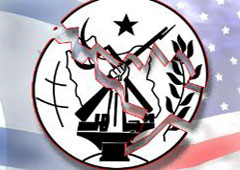
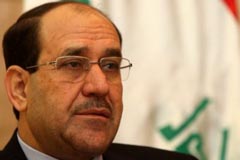 that seven of its members had been missing in the recent events that took place in the New Iraq camp, and claimed that they were abducted by Iraqi troops. As we reject these allegations altogether we reiterate the fact that the Iraqi forces has never conducted any actions against members of this organization, whether in the camp of New Iraq or any other site, but the elements of this organization, which is still on the list of terrorist organizations refused to allow Iraqi forces, which were protecting the camp, entering the camp at the time of the accident and impeded investigation efforts.
that seven of its members had been missing in the recent events that took place in the New Iraq camp, and claimed that they were abducted by Iraqi troops. As we reject these allegations altogether we reiterate the fact that the Iraqi forces has never conducted any actions against members of this organization, whether in the camp of New Iraq or any other site, but the elements of this organization, which is still on the list of terrorist organizations refused to allow Iraqi forces, which were protecting the camp, entering the camp at the time of the accident and impeded investigation efforts.